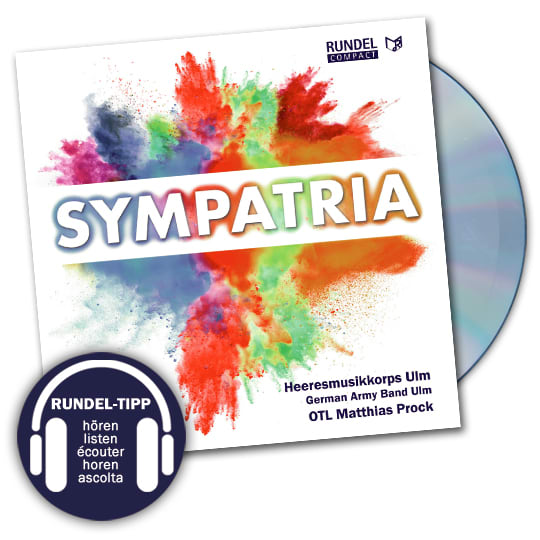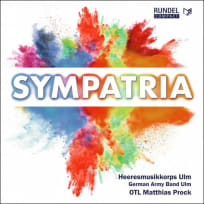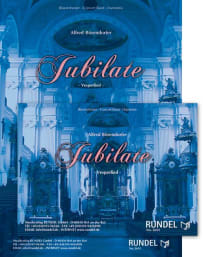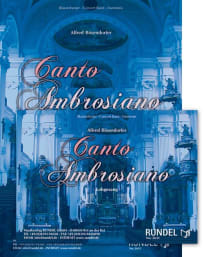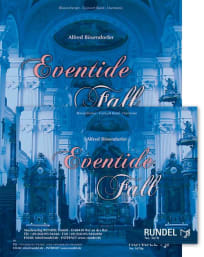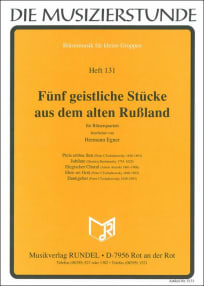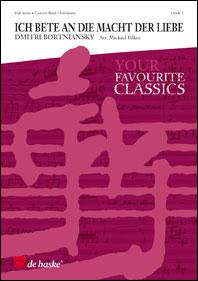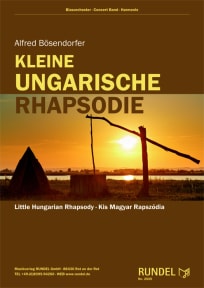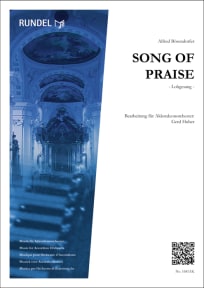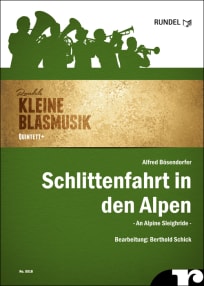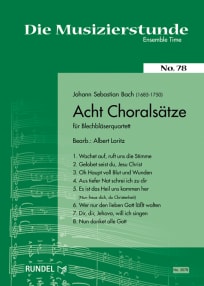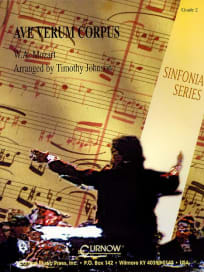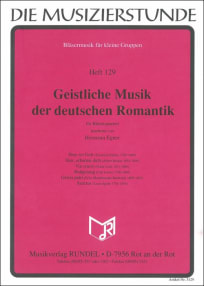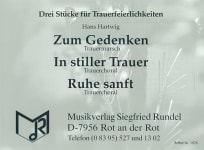Ich bete an die Macht der Liebe - MVSR2623 | Music
HomepageMusicIch bete an die Macht der Liebe - MVSR2623Concert Band
Ich bete an die Macht der Liebe
Prayer to the Power of Love
I Pray for the Power of Love

Concert Band
Ich bete an die Macht der Liebe
Prayer to the Power of Love
I Pray for the Power of Love
Composer
Arranger
Performance time
00:02:36
Grade Level
Unter-/Mittelstufe
Publisher
Rundel
Size
March / Card Size
Info
Full Score + Condensed Score + Parts
Order Number
MVSR2623
Release Date
2018
Info
Already as a boy, the Ukrainian composer Dmitry Bortniansky (1751-1825) was a member of the court choir in St. Petersburg. He then studied in Bologna, Rome and Naples returning to St. Petersburg in 1779. There he was promoted to state councilor and director of the court chapel. He forged this ensemble into a choir of European bearing. In his oeuvre he amalgamated Russian and western elements into a polyphonic style that he had learned about in Italy. His composition “Kol slaven nash gospod v Zionye” (in English: “How Glorious is our God in Zion”) plays a key role in military music ceremonies of different states. Next to its use in Russia and other Slavonic countries, it distinguishes itself due to its status in the German Grand Ceremony of Beating Retreat. Bortniansky composed this hymn between 1790 and 1801; it soon spread rapidly although it was actually written for the masonic lodge of St. Petersburg by one of its leading masons, M.M. Cheraskov (1733-1807) who himself introduced Bortniansky in the Petersburg lodge. Before the Czarist anthem by Lvov who was Bortniansky’s successor with the court chapel, “Kol Slaven” was performed in place of the national anthem. The hymn was also used for a number of solemn occasions in the army. Most important was its usage during the tattoo that was staged in the army’s daily evening routine. The path of the hymn to Germany began in St. Petersburg in 1824 when parson Johannes Goßner who had converted from catholic denomination, used the lyrics of the hymn “I Adore the Power of Love” written by the German composer of hymns, Gerhard Tersteegen (1697-1769). It is generally known in this version in the German-speaking countries. Due to his activities in Berlin (1826-1858) Goßner passed the song which he had become acquainted with in St. Petersburg together with the lyrics adopted from Tersteegen to the court of King Frederick William III of Prussia. The first performance of the chorale goes back to a massed bands concert (Concert monstre) that was staged in Berlin in 1838 to honor the Russian Czar Nicholas I who stayed in Berlin for a state visit. Wilhelm Wieprecht, the “Director of all Bands of the Guards Corps” set as finale of a demanding concert his newly arranged Grand Ceremony of Beating Retreat which then was called “Russian Tattoo”. Although some other airs were performed in place of Bortnianky’s since that time, it became eventually mandatory for the Ceremony of the Grand Retreat. This, however, occurred only recently on the basis of a joint service regulation of the German Federal Armed Forces. There is only one exception to this rule, as “The Bavarian Military Prayer” by Johann Caspar Aiblinger (1779-1876) will be played in that state for traditional and historic reasons.
Keywords
Slawen / slawisch
Arrangement / Transcription
calm
Catholic Church
Chorale
Church / Religios Building
Church Song / Hymns
Classical Music
Ecumene
Evangelical / Protestant church
expressively
Feelings / Emotions
festive
Funeral chorale
Funeral music
Funeral service
Grief / Death / Dying
Last Post / Taps
Love
March / Card Size
Massed Bands / Tattoo
Orchestral Transcriptions
pray
Prayer
prayerful
RUNDEL YouTube Channel
Russia
sad
Saint Petersburg
solemn
Wedding / Marriage
Listen & read from the Rundel YouTube Channel
RUNDEL VIDEO
Ich bete an die Macht der Liebe
Notes available at:
https://www.rundel.de/en/
Prayer to the Power of Love
I Pray for the Power of Love
Already as a boy, the Ukrainian composer Dmitry Bortniansky (1751-1825) was a member of the court choir in St. Petersburg. He then studied in Bologna, Rome and Naples returning to St. Petersburg in 1779. There he was promoted to state councilor and director of the court chapel. He forged this ensemble into a choir of European bearing. In his oeuvre he amalgamated Russian and western elements into a polyphonic style that he had learned about in Italy. His composition “Kol slaven nash gospod v Zionye” (in English: “How Glorious is our God in Zion”) plays a key role in military music ceremonies of different states. Next to its use in Russia and other Slavonic countries, it distinguishes itself due to its status in the German Grand Ceremony of...
https://www.rundel.de/en/
Prayer to the Power of Love
I Pray for the Power of Love
Already as a boy, the Ukrainian composer Dmitry Bortniansky (1751-1825) was a member of the court choir in St. Petersburg. He then studied in Bologna, Rome and Naples returning to St. Petersburg in 1779. There he was promoted to state councilor and director of the court chapel. He forged this ensemble into a choir of European bearing. In his oeuvre he amalgamated Russian and western elements into a polyphonic style that he had learned about in Italy. His composition “Kol slaven nash gospod v Zionye” (in English: “How Glorious is our God in Zion”) plays a key role in military music ceremonies of different states. Next to its use in Russia and other Slavonic countries, it distinguishes itself due to its status in the German Grand Ceremony of...

